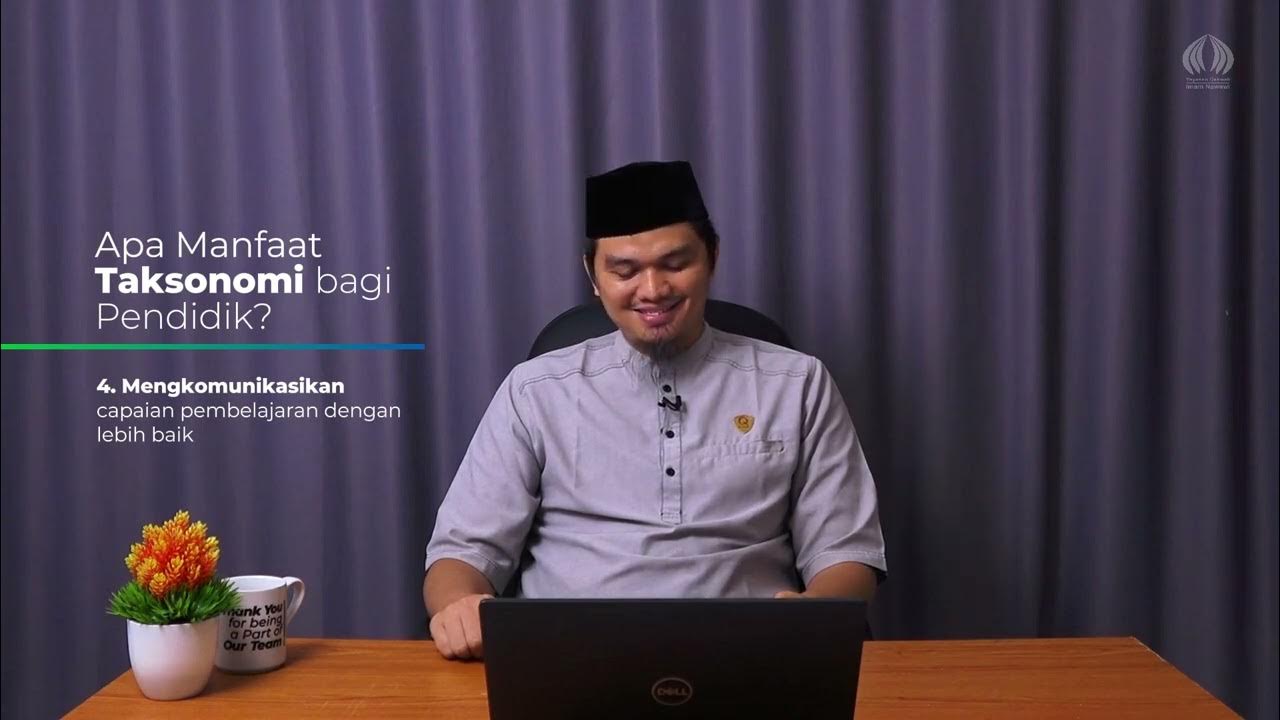ORASI EPISODE 11: Transformasi Digital dalam Pembelajaran Sejarah | Praktisi Pendidikan
Summary
TLDRThis video script features an engaging conversation on the significance of history education and the role of innovative teaching media. Pak Riadi, a lecturer from Surabaya State University, emphasizes the importance of understanding history as a foundation for the future. The discussion highlights various teaching media, such as dioramas, infographics, and digital tools like documentaries and podcasts, which enhance historical learning. Challenges in digital education and the importance of validating content are also explored, alongside the benefits of blending traditional resources like textbooks with modern technologies. Pak Riadi underscores the need for collaboration between historians, educators, and technology experts to make history more accessible and relevant for students today.
Takeaways
- 😀 History is crucial for understanding our identity and shaping the future, as it helps us learn from the past.
- 😀 Effective history education requires both understanding the subject matter (history itself) and mastering the communication methods to convey it.
- 😀 Modern history education must adapt to the communication styles of current generations, integrating technology to meet evolving learning preferences.
- 😀 Historical learning media should cater to contemporary communication trends, moving away from outdated methods like physical replicas and models.
- 😀 In the digital age, historical learning must incorporate digital tools, while ensuring content accuracy through proper verification and curation.
- 😀 Media such as dioramas and infographics are effective tools to visually communicate historical events, making them easier to understand and engage with.
- 😀 Film documentaries can serve as powerful tools for conveying historical narratives, turning past events into accessible messages.
- 😀 Podcasts are a modern way to engage learners with history, providing an accessible, enjoyable, and in-depth medium for historical exploration.
- 😀 While digital media is popular, traditional textbooks remain valuable due to their flexibility and the fact that they are accessible without the need for internet or electronic devices.
- 😀 The development of history learning media must consider the local context and historical significance of a region, offering students the opportunity to engage with history in meaningful ways.
- 😀 The new curriculum (Kurikulum Merdeka) in Indonesia encourages the exploration of local history and offers opportunities for students to delve deeper into regional historical contexts.
Q & A
Why is learning history considered important, according to Pak Riadi?
-Pak Riadi emphasizes that learning history is important because it allows individuals to understand their own past, which helps in forming their identity. By studying history, one can gain insights into their own identity, which serves as a foundation for making future decisions.
What role does media play in teaching history?
-Media plays a crucial role in history education by serving as a tool for communication. Pak Riadi highlights that effective history teaching requires not only knowledge of the past but also the ability to communicate it. Media acts as a bridge to make historical narratives more accessible and engaging.
Can you provide examples of effective media for history education today?
-Pak Riadi discusses various forms of media, such as dioramas and infographics. These tools help in providing a visual and concise representation of historical events, making it easier for students to grasp complex historical concepts.
What are the main challenges of using digital media in history education?
-According to Pak Riadi, the main challenges include ensuring the validity of content, adapting to the communication style of current generations, and dealing with the sophistication of technology. Teachers need to verify sources, ensure content is relevant, and understand how to use technology effectively.
How does Pak Riadi view the role of documentaries in history education?
-Pak Riadi believes that documentaries, while not inherently historical, can serve as a valuable source of historical information. When edited and presented with a historical narrative, documentaries can effectively convey historical messages and help students visualize past events.
What is Pak Riadi's opinion on podcasts as a medium for teaching history?
-Pak Riadi sees podcasts as a positive development in history education. He believes that podcasts, being engaging and accessible, can attract interest from listeners, thus encouraging deeper exploration of historical topics.
What role do social media platforms like Instagram and TikTok play in history education?
-Pak Riadi cautions that while social media can spread historical content, not all of it is reliable. He stresses the importance of verifying and curating historical information from social media, but also acknowledges that these platforms can present history in an engaging and accessible manner.
How has the use of textbooks evolved in history education, according to Pak Riadi?
-Pak Riadi notes that while digital media has become more prevalent, textbooks still play an important role in history education. They provide flexibility, especially in regions where digital access may be limited. Textbooks remain a valuable resource that complements digital tools.
What challenges does Pak Riadi identify for regions with limited digital access?
-Pak Riadi highlights that for areas without reliable internet or digital devices, the best approach is to adapt history education to local contexts. He suggests that field visits to historical sites or using locally relevant media could enhance history education in such areas.
How does Pak Riadi see the impact of the 'Kurikulum Merdeka' on history education?
-Pak Riadi views 'Kurikulum Merdeka' as a positive development, offering more flexibility for students to explore local history in-depth. This curriculum allows teachers to go beyond national history and explore regional histories, providing a more personalized learning experience.
Outlines

This section is available to paid users only. Please upgrade to access this part.
Upgrade NowMindmap

This section is available to paid users only. Please upgrade to access this part.
Upgrade NowKeywords

This section is available to paid users only. Please upgrade to access this part.
Upgrade NowHighlights

This section is available to paid users only. Please upgrade to access this part.
Upgrade NowTranscripts

This section is available to paid users only. Please upgrade to access this part.
Upgrade Now5.0 / 5 (0 votes)





